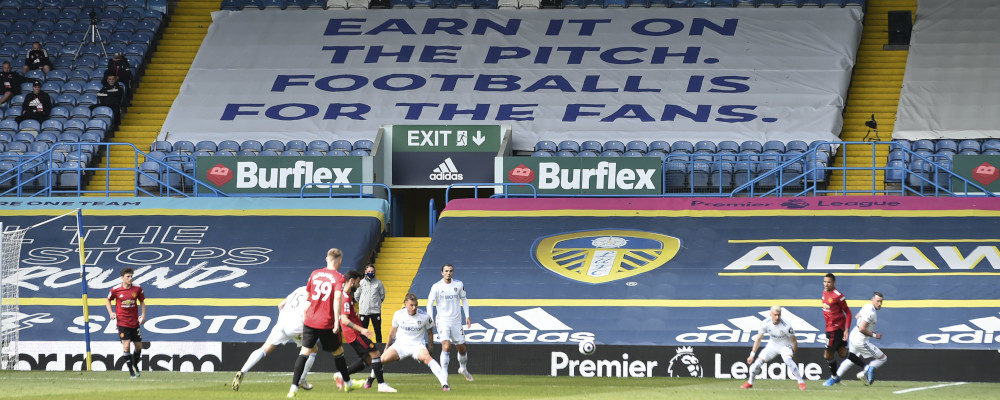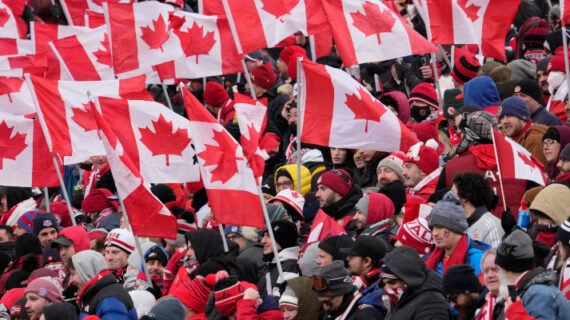For the uninitiated, the European Super League sounds like the lamest ever collection of Marvel supervillains and, actually, that’s not far from the truth.
Twelve of the world’s richest soccer teams had a series of Zoom meetings during the COVID-19 pandemic and colluded to upend European club soccer by playing mostly among themselves.
Luckily, the public’s response was such a visceral eruption of scorn that the project died in a matter of days.
MORE SIGNAL. LESS NOISE. THE HUB NEWSLETTER.
The group proved Adam Smith’s point that when people of the same trade get together the conversation invariably turns to “a conspiracy against the public, or in some contrivance to raise prices.”
The ambition of any business is to crush the competition but for these teams the goal was to crush the very idea of competition itself. With a super league, there would be no risk of relegation to lower leagues and no fear they wouldn’t qualify for the top tier cup competition.
Any business would happily take a monopoly or some massive hedge against failure, but there is always the problem of offending the public’s sense of fairness in the process. That’s what the super league did and that’s why angry fans streamed into the streets and even onto the pitch at Manchester United’s Old Trafford stadium causing a match to be postponed.
It was likely former Manchester United player Gary Neville’s furious response to the super league plan that sparked the country-wide protests.
“It’s an absolute disgrace,” fumed Neville, from his perch as a commentator on Sky Sports, when the story broke. “It’s criminal. It’s a criminal act against football fans in this country, make no mistake about it.”
Unlike American sports, there is potentially no limit to how far a team can fall in European soccer.
Liverpool FC’s manager Jurgen Klopp later accused Neville of “winding people up” and endangering the safety of stadium workers and police officers with his rant.
Neville’s role in the saga is a reminder that even in an irony-soaked social media age, we are still susceptible to a certain kind of rhetoric. The Tea Party in the United States started, after all, when CNBC reporter Rick Santelli launched into a tirade about personal responsibility on the floor of the Chicago Mercantile Exchange.
Every now and then a Howard Beale figure pops up to articulate some formless grievance rattling around in our brains.
And although Neville was pillorying the “pure greed” at the heart of the push for a super league, he wasn’t suggesting people shouldn’t make money off the sport and he shot back when Klopp called him a hypocrite for cashing in as a pundit.
“I’ve benefited from football hugely. I’ve made money out of football and I invest money in a football club,” said Neville. “I’m not against money in football but the principles and ethos are of fair competition.”
The idea that a relative minnow like Leicester City FC could win the English Premier League, as they did in 2015-16, is one side of the competitive coin in European soccer. The other side is that teams can tumble into obscurity out of the top league.

There are consequences to being bad and, unlike American sports, there is potentially no limit to how far a team can fall.
Arsenal, one of the super league hopefuls, will miss out on top tier European games next season after a dismal showing this year, costing tens of millions of dollars. Some other team, possibly a “lesser” team like Leicester City or West Ham United could take Arsenal’s place.
That’s the kind of fairness we expect from sports and from the economy itself. Studies show that what people want from the economy is not necessarily equality, but some sense that everyone is playing by the same rules and that we can all be rewarded for our successes.
A study in the scientific journal Nature Human Behaviour by Christina Starmans, Mark Sheskin and Paul Bloom argued that recent research showing people favour equality was making a big oversight. In those experiments, equal distribution was favoured because it was the fairest outcome but, of course, that’s not always the case.
For example, if kids are asked to hand out prizes to two boys who cleaned their bedrooms, they will distribute the prizes equally. That suggests we favour equality. But tweak the study a little bit and tell the kids that one of the boys worked a lot harder and did a better job cleaning his room and the kids will reward the hard worker.
We see this in the real world, too. People want to reduce the levels of inequality in the United States, but that comes from fairness concerns, not necessarily a blind urge for equality. The problem isn’t so much that some people are making more than others, but that “the system is rigged” against the little guy, as both Donald Trump and Bernie Sanders were happy to tell people. In other societies, such as the former USSR people bristled at the high level of enforced equality because that feels unfair too.
“It turns out that there is no evidence that people are actually concerned with economic inequality at all. Rather, they are bothered by something that is often confounded with inequality: economic unfairness,” the authors argue.
That’s why Neville struck a chord with his incensed response to the super league. He correctly diagnosed a “conspiracy against the public,” a deeply unfair proposal and called it out with the ferocity it deserved.




